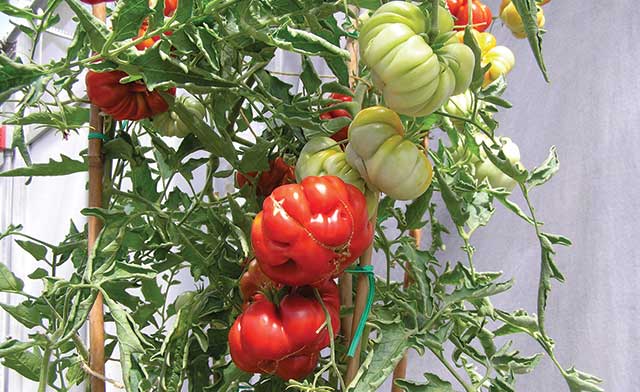 UGLY FRUIT: Some tomato varieties, such as this one with mutations in the lc and fas genes, grow interestingly shaped fruit.ESTHER VAN DER KNAAP
UGLY FRUIT: Some tomato varieties, such as this one with mutations in the lc and fas genes, grow interestingly shaped fruit.ESTHER VAN DER KNAAP
He doesn’t garden at home, but plant geneticist Zachary Lippman does cultivate his own small kitchen crop of grape tomatoes among the five acres of the fruit grown for research in Cold Spring Harbor Laboratory’s fields each year. Having studied tomatoes for nearly two decades, Lippman, an associate professor at Cold Spring Harbor, knows the fruit well. He’s partial to plants that produce smaller tomatoes, because they “grow like weeds” compared to the many hefty varieties commonly found at farmers’ markets.
Tomatoes weren’t always so beefy. Much like Lippman’s grape-tomato plants, wild ancestors of the domesticated crop (Solanum lycopersicum) bore berry-size fruit—a far cry from the SteakHouse variety of up-to-three-pounders currently sold by seed company Burpee.
“Since domestication, diversity at the genome level has been ...




















